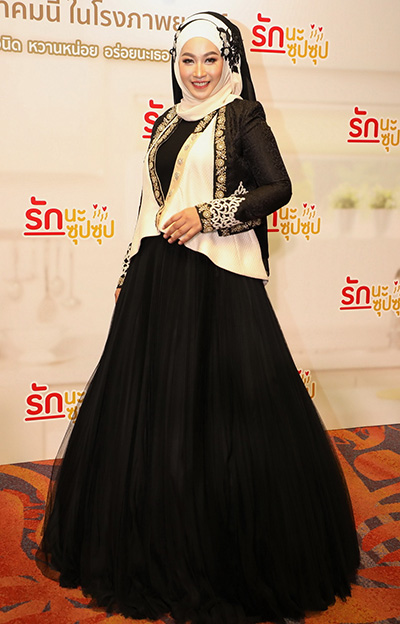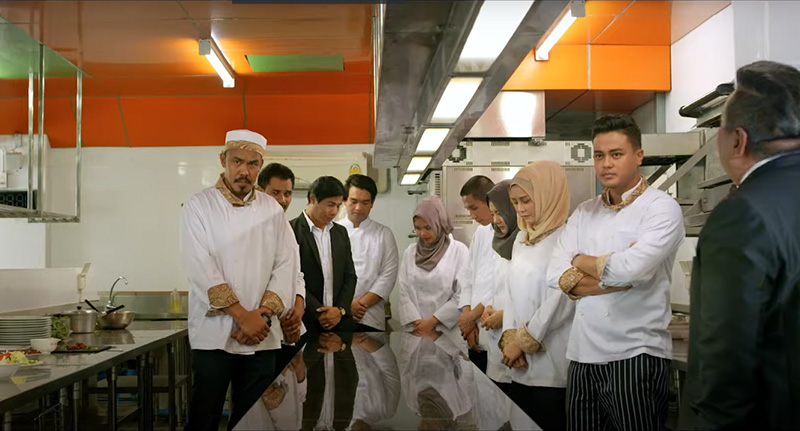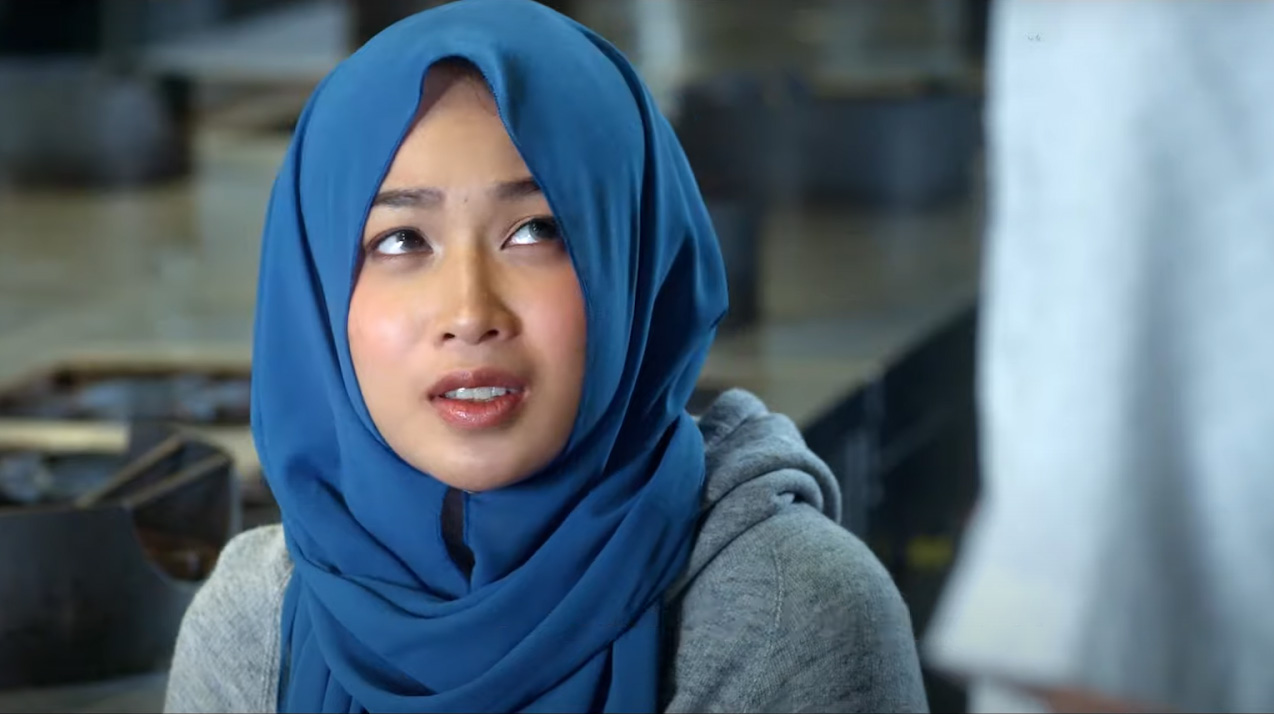In one telling moment, Minnie prepares an ethnic Malay, or Melayu, breakfast for the owner of the restaurant where she works. Right when he sits down, with neither whiff nor taste, he spits out his verdict: “This food is bad!”
That’s one of many scenes in Rak Na, Soup Soup (Love Na, Soup Soup), in theaters now, in which men punch down on the female lead. It happens a lot in a film with much riding on its tactful representation of the only Muslim leading lady in recent memory to hit theaters nationwide rather than be relegated to film festival obscurity.
That’s why I’d like to not be too hasty in slapping the “kick-me” sign of misogyny on the back of Soup Soup – at least not until after we talk about it.
For despite its shortcomings, the film succeeds in breaking a long-held and harmful mold of Muslim-Thai representation.
Director Kriangkrai Monwichit said in an interview that his goal was to give people a taste of southern Thai, specifically Melayu, culture through its cuisine. Did he succeed?
If we take a look at the story in a social vacuum, then sure.
Soup Soup, at its heart, is a romantic comedy about a woman named Minnie (Sasanee Weerachat) who dreams of being a chef, just like her great-grandfather back in the days of the Pattani Sultanate. She invokes her lineage to win a restaurant trainee gig. When a sanitation mishap costs the restaurant its Muslim star (like Michelin but Muslim), the blame, perhaps unfairly, falls on her. That sets Minnie on the path of (re)discovering the recipe of her renowned lineal dish to restore the restaurant’s honor.
If the goal was to strut a bit of Thai-Muslim culture through its food, we could call it a success. But it would naively ignore all the real-world political contexts ensnaring the film – and make for a very short analysis.
Let’s unpack all this.

First, let’s acknowledge the elephant in the room: the film’s jarring edits, awkward tonal shifts such as a sudden Scooby Doo-worthy chase scene, zombie-like monotonal acting and weirdly empty kitchen sets in what’s meant to be a busy restaurant. Some are defects of craft, others likely of spartan budget.
While shots of food are the neatest aspect of the film, its biggest shortcoming are the portrayals of women. The men are consistently unreasonable, such as when they blame the loss of the star on her despite the fact she wasn’t even cooking.
Another issue is the romantic psychology of the men versus the women. The film implies the women are almost wholly motivated by pursuit of love. Take Feya, the sous-chef and only other woman in the kitchen with dialogue. Yet Feya turns out to be little more than a vehicle for a jealousy subplot and perpetuates the idea that landing a successful man is just as good, or better, than achieving one’s own success.
And though Minnie fights an uphill battle to be a chef, the whole thing ends with only the men getting what they want while our heroine learns to accept her lot in life.
Can this be written off as the oft-cited sexism of some Muslim cultures? While that’s a valid question, it’s equally important to take into account what this Muslim rom-com accomplishes as well as fails.
On the one hand, the way the story unfolds is consistent with the Melayu culture it is trying to represent. Through Minnie’s moment of epiphany, we learn about the importance of qurbani, or animal sacrifice, on Eid al-Adha, and how its sharing makes the festival about generosity, kindness and community. This positive depiction of Islam is rare in Thai media and deserves recognition.
But what remains awkward in Soup Soup is how the men constantly disparage Minnie, leaving her otherwise serviceable “personal journey” with a sexist aftertaste. In any other context, the film would be labeled sexist and we would move on.

But what should be asked is the less comfortable, but important, complicated, and nuanced question: Is this Thai Muslim film any more sexist than what typically comes out of Thailand? If not, do we feel its sexism more pronouncedly because of our preconceived notions about how women are treated in the Muslim world?
I venture to answer that any other romantic comedy meant for mass appeal in Thailand would be just as sexist. And while it’s important to speak truth to power and call out problematic portrayals, it’s also important to take things slowly and unpack them in context.
Yes, Minnie’s story culminates in a punch-down on the only female protagonist agent of change, and yes, there are plenty of scenes of casual sexism.
But how many (positive) stories of Muslim Thais have been in circulation? Most recently, we were served Islamophobia on a platter by the military-backed Latitude 6, which made Muslims in the Deep South out to be faceless harbingers of violent terrorism. We’ve also seen occasional Muslim-focused stories – the excellent Manta Ray (2018) being one I’d give a shout-out to – that show at foreign film festivals but never reach a wide domestic audience. Soup Soup might just be the only one to hit major theaters in recent years.
While we can normalize Soup Soup’s shortcomings – its sexism and glaringly poor craftsmanship alike – as we have with other films, we must do so while also calling out those shortcomings, mindful of the cliche that “failure is part of success.” We must expect that people in positions of power – i.e. filmmakers – will learn from their mistakes. We must expect this of – and give a chance to – Muslim Thai creators because of how rare it is to see them represented in our media.
We should watch Rak Na, Soup Soup. We should discern its layers, its flaws and merits. And thus we will see ourselves, flaws, merits and all.
Rak Na, Soup Soup, in theaters now, is rated G and is appropriate for all audiences. For limited screenings with English subtitles, check local listings.
Related
Hard questions in Spike Lee joint ‘Da 5 Bloods,’ as reviewed by a Southeast Asian





Reader Interactions